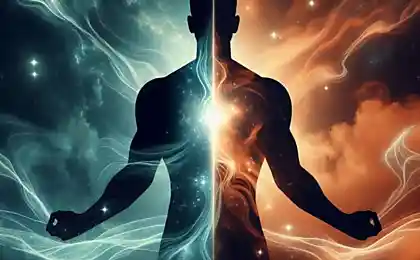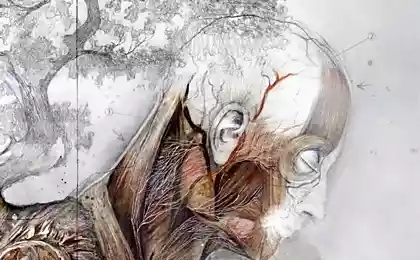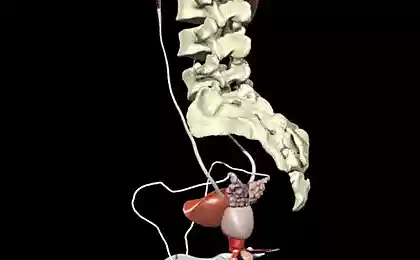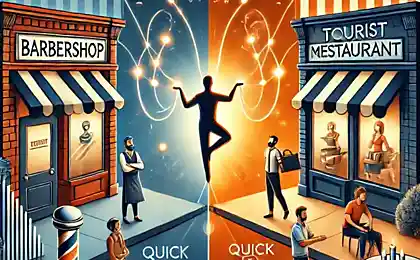164
5 Weaknesses of People Who Make the Biggest Money

At the heart of the most profitable businesses is an understanding of human nature. Successful entrepreneurs have long understood that money is not made on products, but on needs that people cannot control.
We make thousands of decisions every day, and most of them are driven not by logic but by basic instincts. The world’s largest corporations have built empires by exploiting five key weaknesses in the human psyche. Understanding these mechanisms will help you not only protect yourself from manipulation, but also make more informed financial decisions.
1. Hunger: Primary Need as a Source of Profit
The food industry is a trillion-dollar market built on a basic survival instinct. But modern “hunger” is not just a need for calories, it is a complex psychological construct involving emotional nutrition, social status, and instant gratification.
The global fast food market reached $647 billion in 2023
McDonald’s spends $2 billion a year on advertising. The company has created an entire ecosystem where food has become more than just a food, but a way to solve emotional problems. “I deserve it” is the message behind marketing.
Practical advice:
Make a shopping list in advance and never go to the store hungry. This would reduce impulsive spending by 23%, according to research from Cornell University. Use the 24-hour rule for expensive restaurants – wait a day before booking a table.
2. Fear: The emotion that sells best
Fear is an ancient survival mechanism that has become a powerful selling tool in the modern world. Insurance, security systems, anti-age cosmetics, investment products are all sold through the activation of our deepest fears.

Consider the insurance industry. The odds of being in a plane crash are 1 in 11 million, but insurance companies make billions selling protection against that fear. The secret is they don't sell statistics, they sell peace of mind.
The cosmetics industry uses the fear of aging so effectively that women spend an average of $300,000 on cosmetics in a lifetime. Advertising doesn't sell cream - it sells the confidence that you won't become "invisible" as you age.
How to defend yourself:
Look at the real risk statistics. Most fears are irrational. Before you buy something just in case, calculate the mathematical expectation of losses. Most often self-insurance is more profitable than commercial insurance.
3. Laziness: Comfort as a commodity
The human brain is evolved to save energy. This principle became the basis for the creation of entire industries: food delivery, cleaning services, automation, disposable clothing.
The food delivery market has grown by 300% in the last 5 years and reached $150 billion
Amazon has built an empire on the fact that people are willing to pay for not going to the store. The company made $469 billion in 2021 selling convenience. The “buy in one click” button removes all the obstacles between desire and purchase.
Netflix has revolutionized the entertainment industry by realizing that people don’t want to choose what to watch. The recommendation algorithm decides for you, and automatic playback of the next episode makes it so that you do not even notice how you spent the entire evening.
Conscious consumption strategies:
Introduce “friction” into the buying process. Remove saved cards from online stores. Set limits on delivery applications. Each additional step before buying increases the likelihood that you will think twice.
4. Ego: Status as currency
The need for recognition and status is deeply rooted in human nature. Luxury brands, premium cars, expensive gadgets, elite education – all these are goods that sell not a function, but an identity.

Apple has created a cult around its products, selling not technology, but belonging to the "chosen ones." The iPhone costs $200 in production, sells for $1,000, but people are willing to stand in line and take out loans to buy it. It's not a phone, it's a statement of who you are.
Rolex does not sell watches, it sells status. Their slogan, “A Crown for Every Achievement,” appeals directly to the ego. You can buy a Swiss watch for $50, but people pay $50,000 to say, “I have a Rolex.”
Conscious consumption of status goods:
Before buying an expensive item, ask yourself, “Would I buy it if no one knew?” If the answer is “no”, then you are not buying the product, but the approval of others. Look for alternatives that offer the same functionality without overpaying for the brand.
5. Dependencies: The Most Profitable Market
Addiction is a condition in which a person loses control of consumption. The modern world has created new forms of addiction: from social networks, shopping, gambling, caffeine, and even from shopping.
The gaming industry made $180 billion in 2021 using addiction mechanics
Facebook (Meta) hires neuropsychologists to build the most immersive algorithms possible. Notifications, likes, endless tape – all this triggers the production of dopamine, creating a cycle of addiction. The average social media user spends 2.5 hours a day viewing billions of dollars of advertising.
The gambling industry uses the principle of “reinforcement” – the most powerful way to form addiction. Casinos make $500 billion a year selling the illusion of easy money to people who can't stop.
Strategies for breaking dependency cycles:
Set time limits on applications. Create “technology-free zones” at home. Learn the triggers of your impulse purchases and develop alternative strategies. Remember, if a product or service is free, the product is you.
How not to become a victim of your own weaknesses
Understanding our weaknesses is the first step towards financial independence. Use the 24-hour rule for large purchases, learn the psychology of consumption, and create barriers to impulsive spending.
The most successful people don’t get rid of their weaknesses; they understand and control them. Turn your knowledge of consumer psychology into a competitive advantage.
Conclusion
The five weaknesses of human nature – hunger, fear, laziness, ego and addiction – will remain the foundation of the most profitable businesses. But knowing these mechanisms gives you the power of choice. You can become a conscious consumer or even use that knowledge to build your own successful business.
Money is not made on products; it is made on the understanding of human nature.
Glossary
Impulsive consumption – purchases made under the influence of emotions without prior planning.
Variable reinforcement is a psychological principle in which rewards are given irregularly, creating a strong dependency.
Emotional nutrition is the use of food to regulate the emotional state, not to satisfy hunger.
Dopamine is a neurotransmitter responsible for feelings of pleasure and motivation to act.
Mathematical expectation is the average of a random value used to assess risk in financial decisions.
Status consumption is the purchase of goods and services to demonstrate social status.
Self-insurance is a risk management strategy by creating your own reserve fund instead of buying insurance.
Which country are you more likely to go to jail? Top 5 countries
Kurunga to restore intestinal microflora























